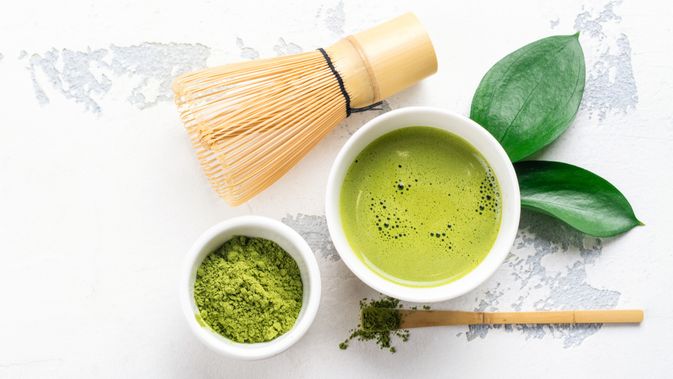What is matcha tea and what is it for?

Matcha tea is literally “powdered tea.” This powder is made from a variety of green tea.
The preparation of matcha tea is at the center of the famous and age-old Japanese tea ceremony and has a long association with Zen. Matcha tea is the only form of tea in which the whole leaf is consumed, and because it is made from high-quality leaves, which are treated with great care, it provides more amounts of the healthy elements than other forms of consumption of conventional green tea.
It is a unique, beautiful and richly tasty drink, which gives those who consume it a feeling of well-being. Also, the simple ritual of preparing it is pleasant and meditative.
To make matcha, unlike most other forms of green tea, farmers cover the plants with shade cloth for three weeks before harvest in May.
This causes the new shoots to develop larger and thinner leaves with better taste and texture. The harvest is manual, and only the youngest and smallest leaves are selected to obtain a matcha of the best quality.
Farmers steam the leaves briefly to stop any fermentation, then dry them and bale them for cold storage.
Aging deepens the flavor of the tea, which becomes optimal after six months after harvest.
How much caffeine is in matcha green tea?
Matcha green tea contains caffeine. Because this tea is made by grinding whole leaves into a fine powder, the amount of caffeine is higher than when you drink tea from sachets.
There is around 32 mg of caffeine in regular green tea compared to 68 mg of caffeine in a teaspoon of ceremonial grade matcha tea (the highest grade).
Don’t let this high level of caffeine scare you off. Remember, a moderate amount of caffeine won’t hurt and has been shown to actually be beneficial for your health.
The caffeine in matcha can help increase metabolism by 40% and regulate blood sugar levels.
If we change the typical morning cup of coffee for a cup of matcha tea, taking into account its properties and benefits, we will maintain the same energy levels, improving concentration throughout the day without the problems that coffee consumption can bring.
Matcha tea benefits and its medicinal properties
Besides being tasty and uplifting, matcha tea has many health benefits. This is due to its properties of matcha tea to improve some aspects of the body, such as those detailed below.
High content of antioxidants
Matcha is rich in catechins, a class of plant compounds in tea that act as natural antioxidants.
Antioxidants help stabilize harmful free radicals, which are compounds that can damage cells and cause chronic and degenerative diseases.
When matcha powder is added to hot water to make tea, it contains all the nutrients from the whole leaf. It tends to have more catechins and antioxidants than simply soaking green tea leaves in water.
In fact, by one estimate , the number of certain catechins in matcha is up to 137 times higher than in other types of green tea.
Including matcha in our diet could increase our amount of antioxidants, which could help prevent cell damage and even reduce the risk of various degenerative diseases.








